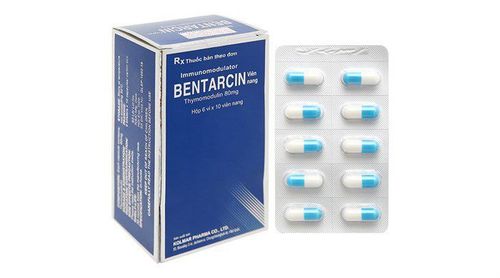This is an automatically translated article.
The article was professionally consulted by Master, Doctor Dang Huy Toan - Pediatrician - Neonatologist - Department of Pediatrics - Neonatology - Vinmec Nha Trang International General HospitalThe immune system plays a very important role in human health, especially in children. Strengthening the immune system will help the baby overcome the risk of disease attacks and help the body develop completely.
1. Get enough sleep to help boost your baby's immunity
First, parents must give the baby enough sleep. Adequate sleep helps strengthen children's immune system, regenerate health and avoid stress. Sleep time in children needs to be met depending on age:
Newborns: From 18 to 22 hours a day. Children 2 to 5 months old: 15 to 18 hours per day. Children 6 to 12 months: 14 to 16 hours per day. Children 12 to 36 months old: 10 to 12 hours per day. Older children and adults must also ensure about 7-8 hours of sleep per day. Children should sleep and wake up early, at noon should also spend a short time to rest. Make the most of the work and put the baby to sleep on time. Limit the organization of parties, causing noise to affect the baby's sleep.
2. Make time for your baby to be active
Exercise is one of the effective ways to strengthen children's immunity, helping their bodies to be firm and healthy. Spend time walking with your baby, walking around the neighborhood, or a nearby park. Participating in movement games and traveling are also opportunities for children to be active.
If at home, let your baby help you with chores that are suitable for your baby such as: cleaning, cleaning the house, preparing the table... Sometimes it's also a way to exercise that your baby likes. Pay attention to the baby to avoid unfortunate accidents during activities.

Vận động là một trong các biện pháp tăng cường miễn dịch cho trẻ
3. Ensure food hygiene and safety
Reserved foods need to be kept separate for raw and cooked types, divided into just enough portions for a meal to avoid excess, repeated cooking will lead to boredom and loss of quality. Avoid leaving food for too long, which can cause food poisoning due to bacterial growth. Do not use foods with many preservatives, colorful colors of unknown origin, because it will easily affect the baby's immune system, leading to bloating, indigestion, and poisoning.
When going out with your baby, choose hygienic food, clean processing, it is best to eat only cooked food. In case the baby has difficulty eating, it is advisable to bring a little instant food that the baby usually eats every day, to combine with the food available at the sightseeing places. Teach your child the habit of washing hands properly before eating.
SEE ALSO: Strengthening the immune system for preschool - kindergarten children
4. Boost your baby's immunity by drinking enough water
Children are often playful, hyperactive and often forget to drink water, making the body unable to purify all harmful substances. Lack of water makes the body tired, easy to get sick. Water is also an agent that helps the respiratory tract work effectively, preventing the penetration of viruses and bacteria that cause minor illnesses. Therefore, it is necessary to remind children to drink water regularly, eat fruits, drink milk to meet enough water each day.
Đảm bảo vệ sinh an toàn thực phẩm tăng miễn dịch cho bé
5. Adequate supply of nutrients beneficial to health
Nutrition for children should have enough energy, protein, fat, and starch. Children should eat right meals, should not disturb children's meals. If the child is anorexic, skipping meals, milk can be temporarily substituted. Avoid giving your child too much sugar because it will make them sick. In addition, parents should not let children drink a lot of soft drinks, sugary fruit juices, ice, ... due to the risk of causing respiratory infections.Breastfeeding is the best immunity booster for babies. Breast milk contains many essential nutrients and antibodies, which help children prevent sore throats and gastrointestinal infections.
The most beneficial vitamins, which help increase the baby's immune system, prevent children from the risk of minor diseases are vitamins C, D, A:
Oranges, lemons, grapefruits, tangerines are fruits containing many nutrients Protective, rich in vitamin C and bioflavonoids, effectively preventing colds and flu. Vitamin C can reduce the symptoms of colds and flu and is especially effective in early childhood. Bioflavonoids are a group of compounds that strengthen the child's immune system and protect cells from damage. Another benefit of these fruits is that they contain very few calories, thus helping to avoid excessive weight gain. Vitamin C is also found in fresh fruits and vegetables. Vitamin A helps to support your baby's resistance to many diseases. Beta-carotene is a precursor form of vitamin A. Sweet potatoes, pumpkin, pumpkin, squash, sweet potatoes, potatoes are good sources of beta-carotene. Potatoes are also rich in magnesium, a micronutrient that has an anti-stress effect, helping the baby to have a more relaxed mood and sleep easier, so that the body can recover quickly after exercise. In addition, beta-carotene is also abundant in dark green vegetables, yellow and red fruits. Therefore, giving children a lot of fresh vegetables and fruits is a safe and effective way to boost their immune system. In addition, vegetables, tubers and fruits also provide a lot of fiber, which helps prevent constipation, limit weight gain, stabilize the intestinal tract, develop beneficial bacteria and increase resistance. Vitamin D not only supports bone growth, height growth, but also participates in the body's immune system. Children who receive a daily vitamin D supplement are 40% less likely to get the flu virus than other children. Vitamin D is synthesized mainly when the baby's skin is exposed to sunlight, so parents should let their children play outside every day under mild sunlight. In addition, vitamin D can be increased for children with fatty fish such as salmon, milk or foods fortified with vitamin D. Zinc is a mineral that helps increase the baby's immunity. Zinc is found in meat, fish, oysters, milk, eggs, mushrooms, and legumes. Zinc has a stimulating effect on the production of white blood cells, which enhances the antibacterial effect. Omega-3 fatty acids help reduce symptoms of attention deficit hyperactivity disorder (ADHD) in children, improve sleep and enhance brain function, and help prevent and reduce feelings of stagnation and fatigue. Omega-3s are found in fatty fish such as mackerel, tuna, salmon, and basa.
Parents should also supplement their baby with digestive beneficial bacteria, they have the effect of strengthening intestinal immunity. Every day, the baby should eat 1-2 times more yogurt, add foods rich in fiber to develop beneficial bacteria.
To increase the baby's immunity, parents should be more proactive through proper nutrition. Avoid children being deficient in micronutrients because this will greatly affect the development and completion of the immune system.
In addition to paying attention to nutrition to improve resistance for children. Parents should add supporting foods containing lysine, essential micro-minerals and vitamins such as zinc, chromium, selenium, B vitamins,... sick and less likely to have digestive problems.
Parents can learn more:
Why do you need to supplement Lysine for your baby?
The role of zinc - Guidelines for reasonable zinc supplementation
Please visit the website Vinmec.com regularly and update useful information to take care of your baby and family.













